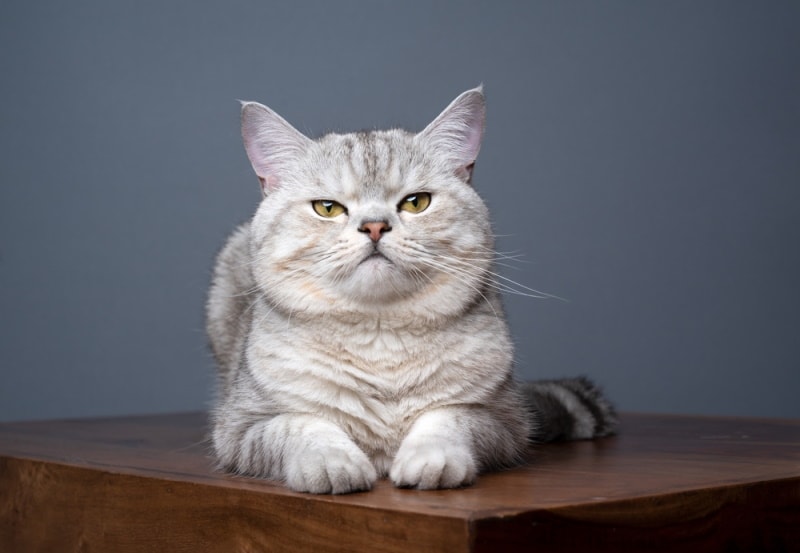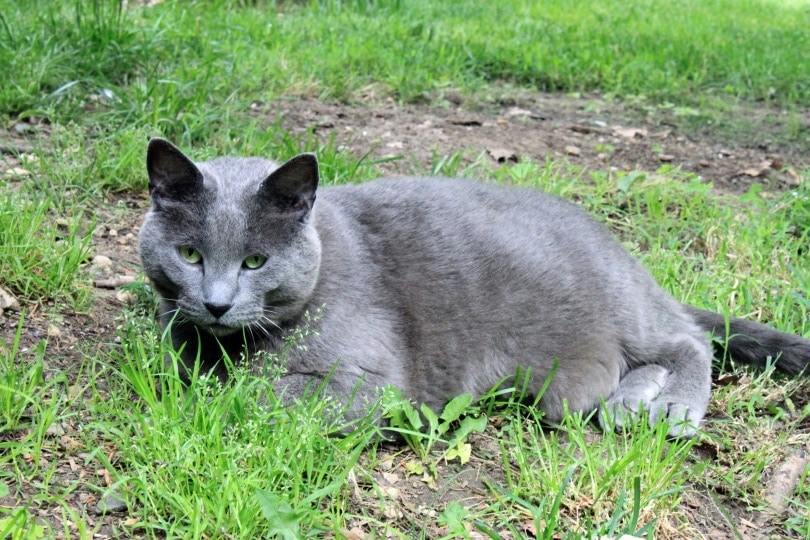Can Cats Eat Tangerines? Nutrition Facts & Safety Guide
Updated on
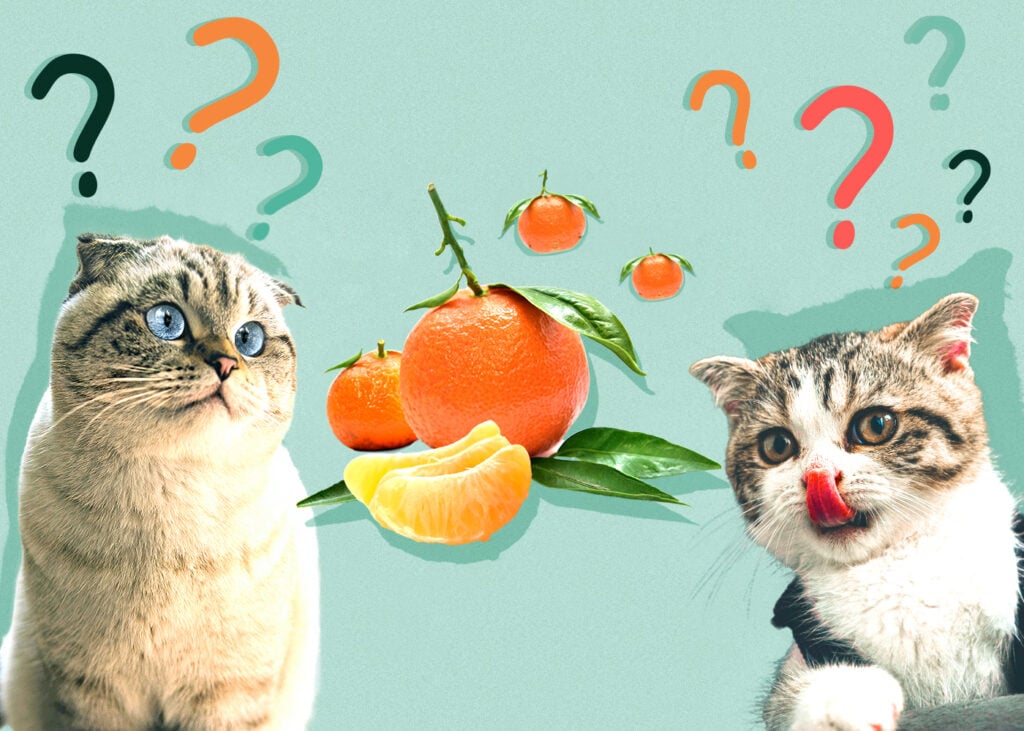
Tangerines are a tasty fruit that hails from the mandarin orange family, and they get their name from Tangier, Morocco, which is their place of origin. Part of the citrus family, this fruit offers an abundance of health benefits, such as vitamin C and vitamin A. This fruit promotes eye, heart, and skin health, and is also a good source of dietary fiber.
When we eat something that promotes such health benefits, like tangerines, it seems fitting to provide such a nutritional treat to our feline furbabies. After all, we want the best for our kitties. But can cats eat tangerines? Sadly, no, they cannot as they are toxic to cats. In this article, we’ll explore why you should avoid giving this fruit to your feline companion.
Can Cats Eat Tangerines?
Even though tangerines are a tasty and refreshing fruit that offers health benefits, you should avoid feeding them to your cat. Cats should not eat citrus fruits, and tangerines are among that class of fruits.
Citrus fruits, such as oranges, lemons, lime, and grapefruit, are toxic to cats due to the essential oils and psoralens they contain, which can cause citrus poisoning. Psoralens also make the skin sensitive to light, and if consumed, your cat can develop gastrointestinal disorders, such as vomiting, diarrhea, and muscle weakness.
It’s also important to avoid letting your cat rub against any citrus fruits because an allergic reaction can occur, and as a result, your cat can develop dermatitis. If your cat is a counter surfer, it’s best to keep citrus fruits out of reach.
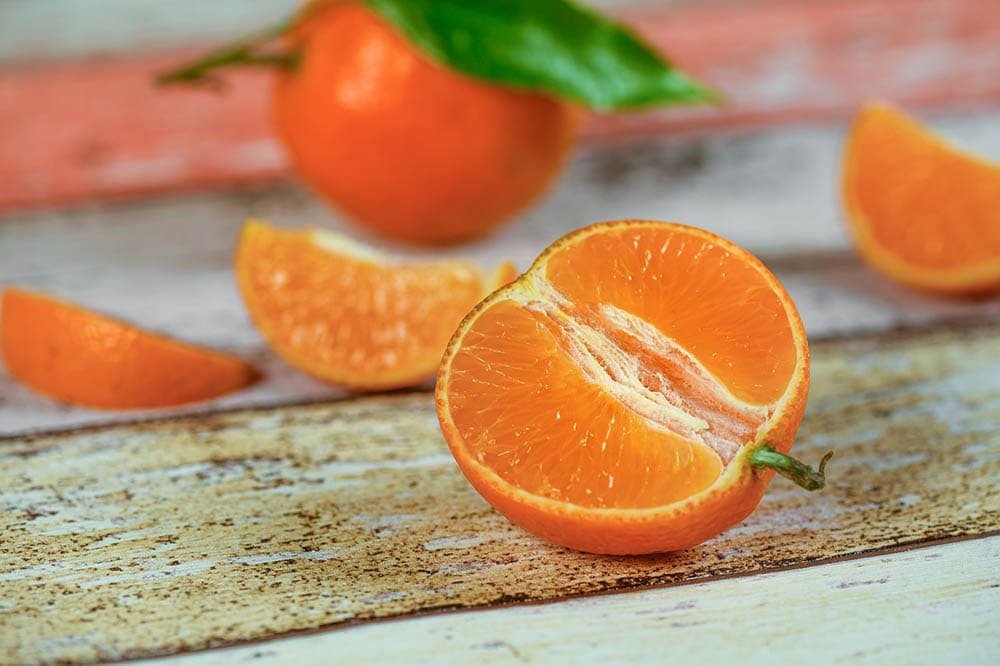
Are Cats Scared of Tangerines?
Most cats don’t like the smell of citrus fruits, and that includes tangerines. The odds are that even if you try to give your cat a nibble of the fruit, it won’t want anything to do with it. Tangerines have even been used to deter cats from destroying Christmas trees or protecting their gardens, and some people put a barrier shield of tangerines around whatever it is they want to protect.
To be safe, make sure your cat indeed hates the smell of tangerines and that you’re confident it won’t eat the fruit before trying this as a method of protecting your Christmas tree or garden.
What Fruits Can Cats Eat?
While cats cannot eat citrus fruits, there are other fruits that are safe. Cats are obligate carnivores, which means they only need meat in their diets to be healthy. They don’t need fruits and vegetables, but the occasional fruit or vegetable is okay, as long as it’s safe and given in moderation.
We recommend picking fruits low in sugar; however, determine that the fruit is non-toxic first. Remember to avoid lemons, lime, oranges, and grapefruit.
Let’s take a peek below.
- Apples
- Cantaloupe
- Mango
- Pineapple
- Strawberries
- Cranberries
- Watermelon
- Blueberries
- Blackberries
- Pears
- Kiwi
- Bananas
- Honeydew
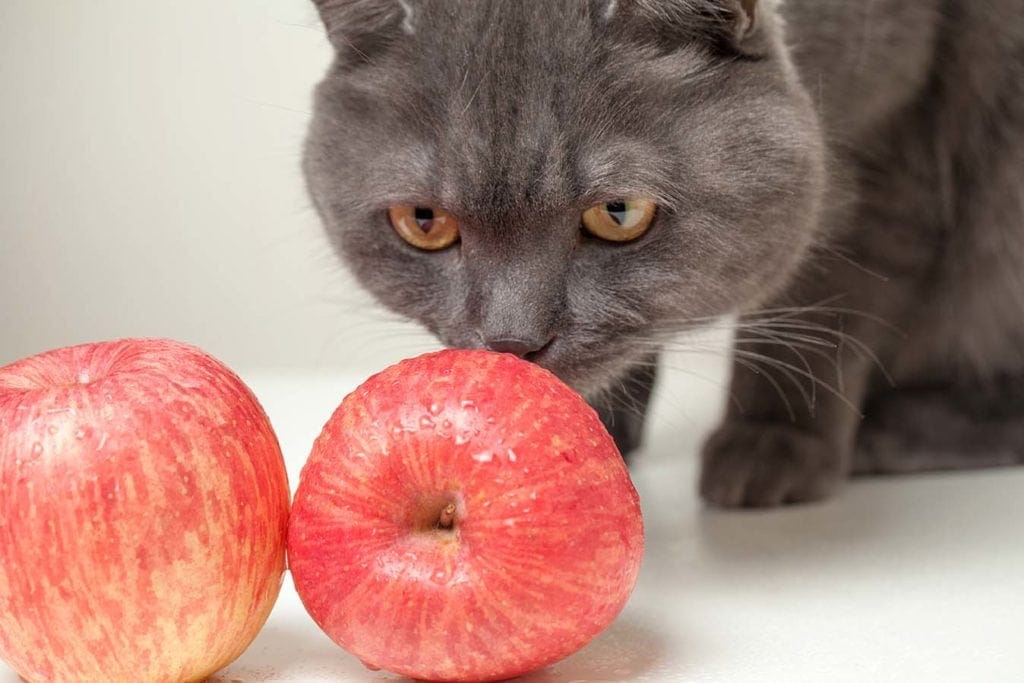
What Fruits Should I Avoid Giving My Cat?
We’ve determined that citrus fruits are off-limits for your feline friend due to their toxicity, but what about other fruits? It turns out that grapes and raisins are toxic to cats and can cause kidney failure if consumed. If your cat digests either of these toxic fruits, contact your veterinarian immediately for treatment.
Do Cats Enjoy Fruit?
Most fruits are sweet, which means your cat will probably show no interest. Why, you ask? The reason is cats cannot taste sweetness because their tongues do not contain the receptors needed to taste sweet. A study confirmed this lack of sweet detectors, so if your cat turns its nose up at a fruit, it’s not because your cat is being picky, but rather your cat cannot detect its sweetness.
Can Cats Eat Fruit Snacks?
Avoid giving fruit snacks because they are high in sugar. These snacks are manufactured from juice concentrates and contain unhealthy ingredients, such as high fructose corn syrup and artificial flavors. Fruit snacks are unhealthy for humans, and that goes for your kitty, too.
Now that you know what you can safely feed your cat, it’s just as important to find a bowl that supports their health and well-being. With whisker-friendly bowls and a wide tray to catch any spills, our Hepper NomNom Cat Bowl is our favorite option.
Final Thoughts
While we’ve determined what fruits are safe and to avoid tangerines, it’s essential to know that even though certain fruits are safe, they should only be given in moderation because they are high in sugar. Too much fruit can still cause gastrointestinal problems for your cat, so it’s best to stick to a well-balanced diet from high-quality cat food.
If you do decide to give your cat the occasional special fruit treat, make sure the fruit makes up only 2% of your cat’s diet. As a rule, though, it’s best only to give the occasional fruit maybe a couple of times a week.
Related Read:
Featured Image Credit: kinkates, Pixabay



